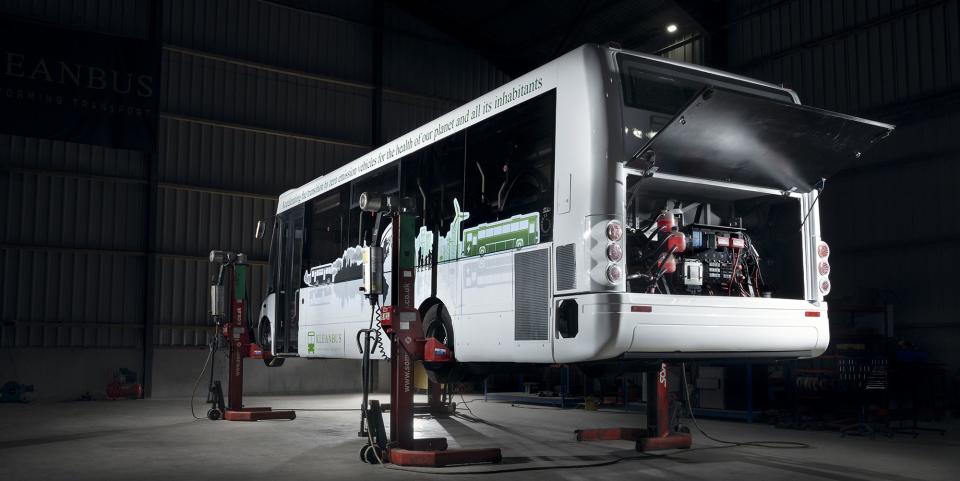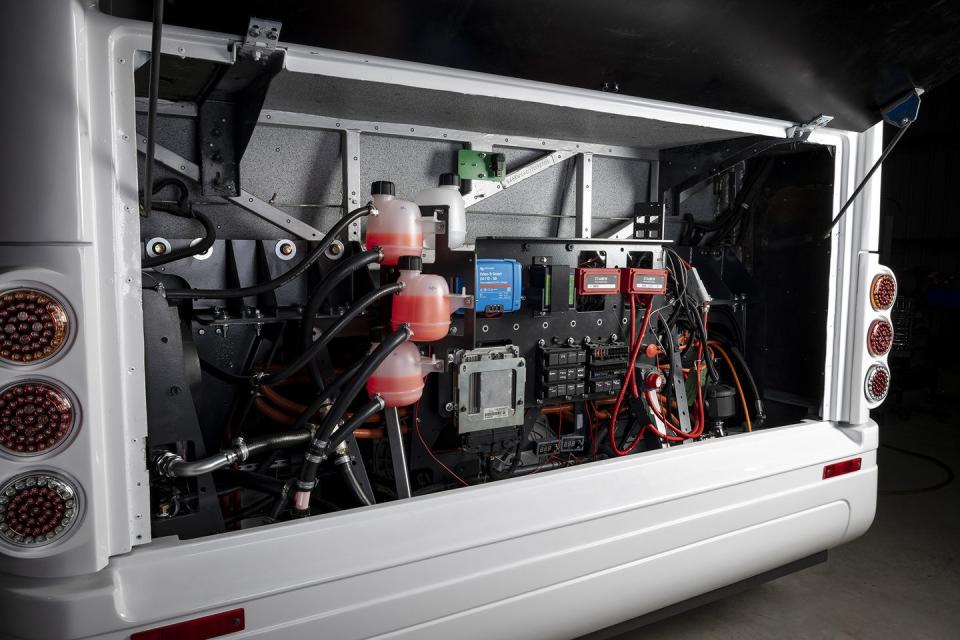Kleanbus Completes Its First EV Swap

EV startup Kleanbus completes its first diesel to electric bus conversion, designed to prolong the life of existing bus models in Europe.
The company plans to offer EV conversion programs for a number of city bus models, promising costs amounting to one-fifth the price of a new bus.
The UK-based startup estimates that such conversions could be performed in as little as two weeks for each bus, once hardware and software are developed for a given model.
Back in 2022 UK-based Kleanbus first revealed its innovative program that converts diesel buses to EV power, developing what it called a technology-agnostic approach to repowering existing buses. The company had created a common set of hardware and software, dubbed "e-drivetrain in a box," to convert buses from a number of manufacturers to electric power, promising that such a conversion would only cost about one-fifth as much as a new bus.
Kleanbus has now completed its first prototype and has wrapped up development of its own advanced modular electric platform, the company revealed this month, using a medium-sized Optare Solo bus as a testbed. Once conversion programs are developed for individual bus models the procedure itself is designed to take just two weeks, the company promises, along with one-third of the running costs of a diesel bus.
The company's pitch to cities and fleets is pretty simple: Instead of buying new electric buses, fleets can convert a variety of their large transit buses to electric power and enjoy the lower running costs, given the high price of new diesel models.
However, the company has not revealed detailed pricing for specific bus models, and more prototypes will be needed to get accurate cost estimates.
"Momentum is building rapidly with the completion of our 'e-drivetrain in a box' and the installation of this modular platform system into our first prototype," said Joe Tighe, co-founder and CEO of Kleanbus. "We are excited to accelerate our prototype testing program, with pilot trials also starting this month with two bus operators."

As part of its service Kleanbus also plans to offer EV charging infrastructure to bus depots, relying on its relationships with charging providers.
If there are hurdles to Kleanbus' vision, one of them is simply its current capacity to perform these conversions in the UK. Kleanbus has a 9000-square-foot facility in the east of England at the moment, but obviously there is a limit to just how many of these conversions it will be able to perform per year for customers.
Another issue is bus makers' own development of battery-electric models that in some cases already account for a significant share of all new city buses produced. Some 10% of all new bus sales in Europe in 2021 were electric models—easily outpacing passenger car EV sales in some countries—and there are now over 10,000 electric buses in operation in the EU.
One other hurdle for Kleanbus is that bus makers themselves could also offer conversion programs, once demand driven by legislation in individual cities and countries reaches a certain level. So an all-EV bus future is not as far off as it seems, at least for European city models compared to long-range tourist buses, which are expected to rely on diesel power for quite some time.
Battery-electric bus models, whether new or converted, still face competition that we're not used to seeing stateside in large numbers: trolleybuses, hydrogen fuel-cell, and natural gas-powered bus models. Demand for all three alternative fuel types has surged in the past five years.
Kleanbus' efforts in creating a prototype have certainly demonstrated the feasibility of such conversions as a proof of concept, but it remains to be seen whether this niche industry will attract many orders from cities, and whether the company will be able to respond to demand that could become overwhelming in the coming years.
Will cities simply opt to buy new EV buses once more models become available, or will we see more conversion efforts as an intermediary step? Let us know in the comments below.

 Yahoo Autos
Yahoo Autos 